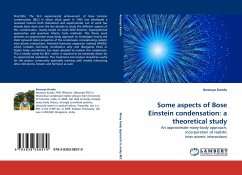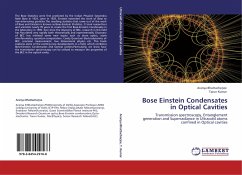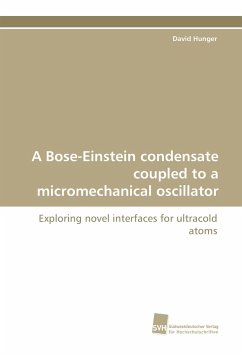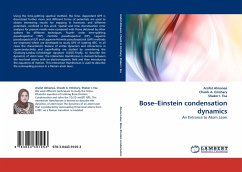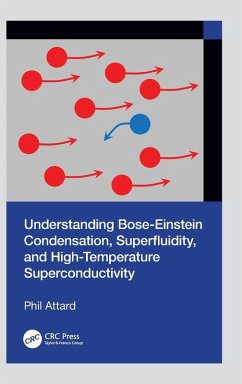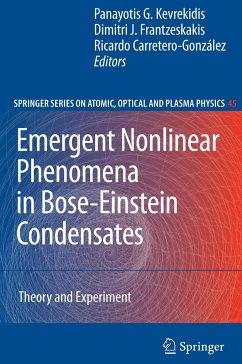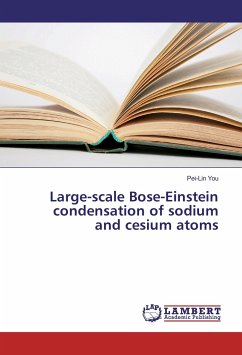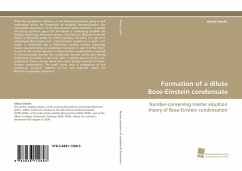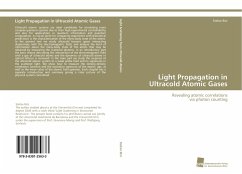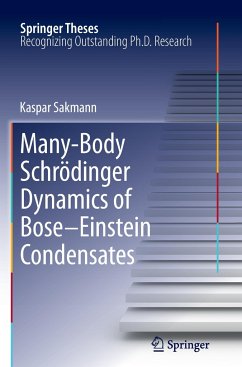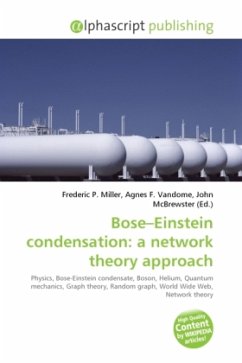
Bose Einstein condensation: a network theory approach
Versandkostenfrei!
Versandfertig in 6-10 Tagen
26,99 €
inkl. MwSt.

PAYBACK Punkte
13 °P sammeln!
In physics, a Bose-Einstein condensate is a state of matter that occurs in certain gases at very low temperatures. Any elementary particle, atom, or molecule, can be classified as one of two types: a boson or a fermion. For example, an electron is a Fermion, while a photon or a helium atom is a Boson. In quantum mechanics, the energy of a particle is limited to set of discrete values, called energy levels. An important characteristic of a Fermion is that it obeys the Pauli exclusion principle, which states that no two fermions may occupy the same energy level. Bosons, on the other hand, do not...
In physics, a Bose-Einstein condensate is a state of matter that occurs in certain gases at very low temperatures. Any elementary particle, atom, or molecule, can be classified as one of two types: a boson or a fermion. For example, an electron is a Fermion, while a photon or a helium atom is a Boson. In quantum mechanics, the energy of a particle is limited to set of discrete values, called energy levels. An important characteristic of a Fermion is that it obeys the Pauli exclusion principle, which states that no two fermions may occupy the same energy level. Bosons, on the other hand, do not obey the exclusion principle, and any number can exist in the same energy level. As a result, at very low energies, a great majority of the Bosons in a Bose gas can be crowded into the lowest energy state, creating a Bose-Einstein condensate.



